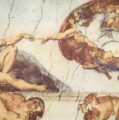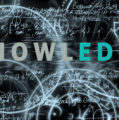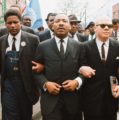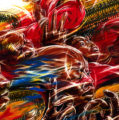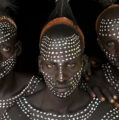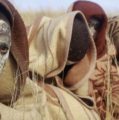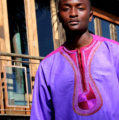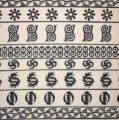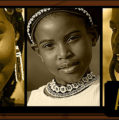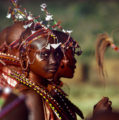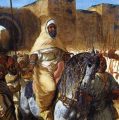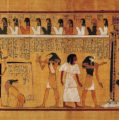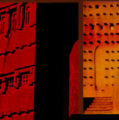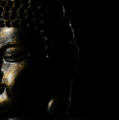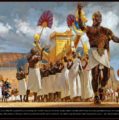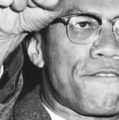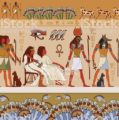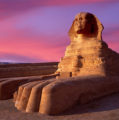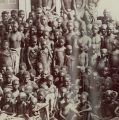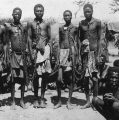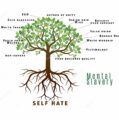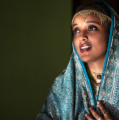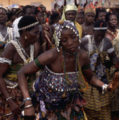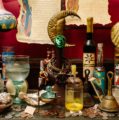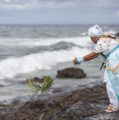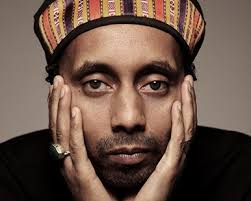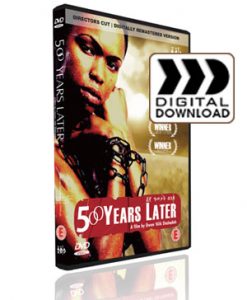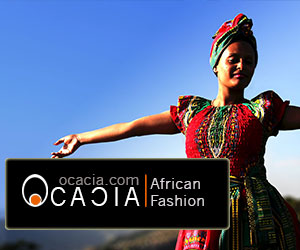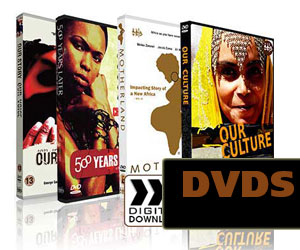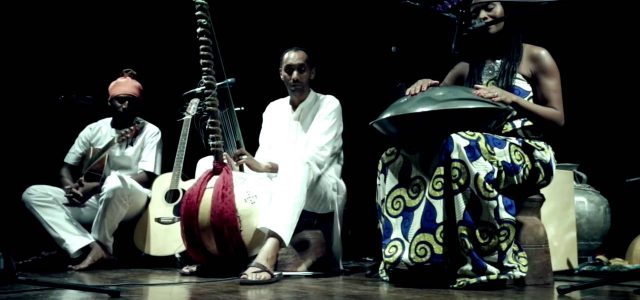
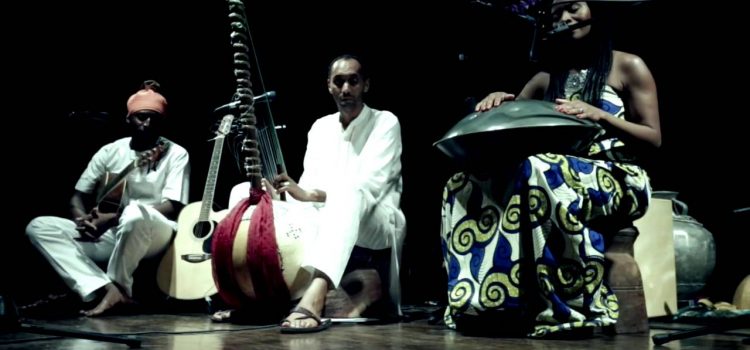

The word classical is not reserved for European arts only. Most cultures produce classical works in all aspects of the arts. So the higher arts of any traditional society can therefore be called classical works. Classical African American music means art-forms like jazz. Africa also has a very ancient traditional of “African classical music” going back to before the royal courts of Sundiata in Ancient Mali, and the Ezana in Ancient Abyssinia and Ancient Egypt. 1)Intro by ‘Alik Shahadah
What would our music and cultural legacy have sounded like if we had not had to endure the cultural genocide and negative impact of Colonialism and the African Holocaust over the last 500 years?
This was one of the many questions we asked ourselves over ten years ago as young composers emerging out of the African Diaspora when we saw the dire need for a re-cultivation, re-constitution and Institutionalisation of the African Voice within the Music and Culture of African peoples worldwide.
How do you go about such a huge task and epic calling? Having personally experienced the negative onslaught of the European Classical tradition, the misrepresentation of African culture within the then growing label or term, ‘World Music’ and, the deafening silence of terminology and definition for the serious aspects of African music and culture that lay within African Diasporic culture outside the zone of ‘entertainment’, the need for the formation of a completely new concept drawing on the richness of our legacy holistically, grew. African Classical Music was born out of this need, circumstance, realisation and understanding. For me it was an idiom which, for the first time, spoke of the richness of our legacy in its entirety, from the dawn and cradle of civilisation in antiquity, through the kingdoms and empirical states of medieval Africa, to the post colonial and trans-Atlantic cultural reality we have inherited today. The concept of ‘African Classical Music’ was about owning and defining the African connection without apology and without fear.
Africanization
There is an urgent need in this time more than ever before for the re-Africanisation of our cultural legacy. This does not come from a separatist imperative but the recognition that our cultural survival depends on it. We cannot offer anything to the collective cultural pool of humanity if we no longer have anything unique to offer. Culture and art is a reflection of a people’s sub-conscious and spiritual well-being and it is this that we have had in abundance through millennia. It is also this dimension that has insured our continued survival against all odds. The process of de-colonisation of the mind and the re-constitution of the African, whether they be from the continent or its huge Diaspora, is a continual process where re-evaluation is repeatedly necessary.
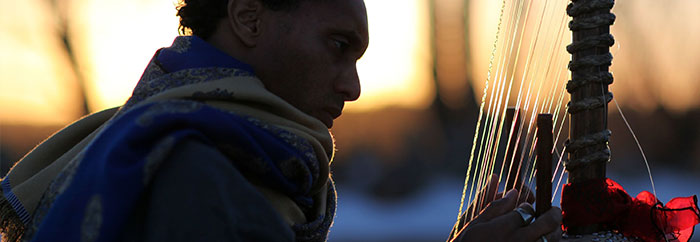
Tunde on the Kora
In 1994 fellow composer, Paul Gladstone Reid, and myself began to formulate ideas we had previously had into a school of thought out of which we would develop a new body of work. Recognising and acknowledging that African people globally were at a crossroads, we understood that there had to be a complete re-assessment and re-evaluation of our cultural legacy, which meant returning to the root and foundation stone. ‘Traditional Africa’ could not solely be relied on but drawn from, for ‘reliance’ without ‘understanding’ had already contributed to our previous ‘falling’. By going back to the beginnings we had to ask ourselves questions such as, ‘Where was the African Voice in Antiquity?’ This lead us into a whole new arena of thought which eventually solidified itself as the theories and principles of the ‘Hermetic Renaissance’.
Music
Looking at the foundation of music as the science of sound and vibration reflecting the Sonics of the wider universe was and still is a fundamental principle within all African Cultures. From the Kora music of West African griots and the Mbira music of the shaman figureheads amongst the Shona people in Zimbabwe, to the Nyabingi chants and capoirera in the African Diaspora, all lay testimony to this eternal truth. The root of this school of thought regarding music as a science and not just an artform originated in Ancient Egypt. The ancient Egyptians understood the greater function of music within the Sacred tradition and it was a fundamental and key component of Ritual. Music was seen as a link pin between the world of the Ancestors and that of the living. A communication Art which, acted as a connection between the two worlds. Gradually over Millenia this sacred art has been reduced to a superficial tool for cheap entertainment which we have inherited today and very few people are in pursuit of the founding principles of music and keeping these alive for the future generations to come. For me, I believe culture is a marker of the spiritual and moral well-being of a people and taking a look around at the current state of our cultural inheritance, musically speaking, needs very little comment, accept to acknowledge that we are clearly at a crisis point.
The mission therefore for all artists of the new generation must be the re-cultivating of our cultural genealogy to contribute to greater pool of human culture, reflecting our unique gift and accent on bringing forth the creative spirit to dwell and enrich our daily lives.
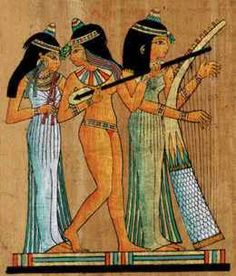
Ancient African Music
For me there is no greater pursuit or need in the arts. To unleash the Spirit of Light through the Arts is the only thing that may help to bring the healing necessary not just for people of African descent but of the wider community also. As a people we have already made a huge contribution to ‘true’ human civilization as opposed to celebrating a simplistic conquest psychosis, but there is still so much more that is possible, for knowledge is an endless resource without limit. We must learn to embody the same principles that we have given to world from the time of Creation. It is these ideas and concepts that drove the motivation or quest to develop the art form of African Classical Music. The need for self-definition just like self-determination was long over-due. Terminology and Definitions have long been used as weaponry by aspects of Western Academia who claim objectivity and yet in reality are defending an ideology with ‘Faith’ rather than in pursuit of knowledge and eternal truths. Liberation of the mind therefore demands that there be an attack on both terminology and definitions that have been thrust upon us without consent or mutual agreement. There are many words that we accept without questioning their use or accuracy just as we accept genres that we are told describe and quantify our music and its experience.
BLACKNESS
Black we are told describes who we are when in fact it is a reactionary term used in opposition to the concept of ‘White’ which was useful at a particularly juncture of our journey towards self-determination but, none-the-less, does not express our cultural experience or identity. It also solidifies the concept of ‘white’, which in fact is an illusion in itself build by human beings to use as a power system of demarcation and has no foundation in scientific fact. Although we may struggle as Black people collectively, it does not define us.
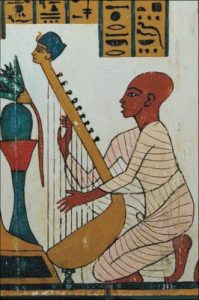
Ancient Egyptian Harpist
Tribal as a term has its origins in Anthropology, which was one of the key sciences used to misrepresent African Peoples in order to justify both the Trans-Atlantic slave trade and later the colonial initiative. The original intention was to prove that the different human races were different species by measuring skulls etc. This first school of thought was quickly proven to be completely wrong scientifically by the school of Evolutionists that superseded it and spawned Charles Darwin whose evolutionist theories are still held and promoted as fact, rather than theory, to this day. Tribal within this context is a de-humanising term to classify people who do not fall into the higher forms of classification and therefore need a marker to reiterate their ‘primitiveness’ or ‘backwardness’ as opposed to the ‘civilized’ and ‘modern’ world that we live in today. Other aspects of this de-humanising terminology include ‘Tribe’ as opposed to ‘People’, ‘Dialects’ as opposed to ‘Languages’, ‘Witchcraft’ as opposed to ‘Religion’, ‘Possession’ as opposed to forms of ‘Worship’, ‘Primitive’ as opposed to ‘Ancient’ and the list continues. All of it is essentially solidifying in the mind the contrast between the ‘Civilized’ 1st World and the ‘Primitive’ 3rd World, thereby re-enforcing Darwin’s evolutionary ideas as fact.
African as a term at least begins to address a point of origin culturally and genealogically even though it is essentially a geographical description. It points to the beginning of a potentially meaningful dialogue and most importantly allows for a connection to the wider African World of the African Diaspora. It is this very meeting point that has sparked and inspired most of my musical journeys, from my youth to the current day.
Music of the Motherland
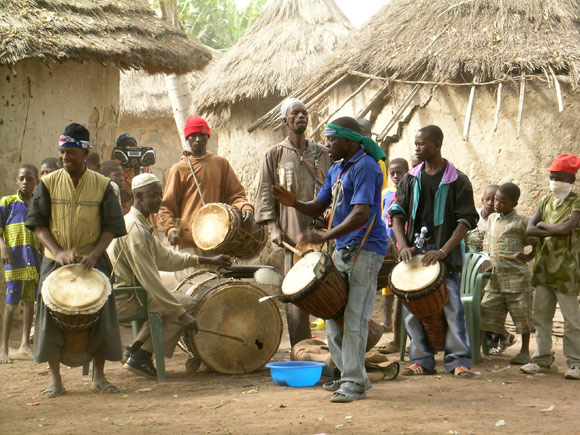
Music in African Traditional Religions
The music of Africa and its Diaspora run through my childhood with Reggae, African music and Western Classical music all living in the same universe, which was my world. My earliest musical memories are of playing percussion in my father’s poetry group, which essentially centred around the Yoruba Culture of Nigeria. This was then followed by my study of the West African Griot Tradition with Master of the Kora, Amadu Bansang Jobarteh, and the Western Classical tradition through my cello studies. The final part of my musical formation was my explorations of the Jazz musical idiom both as a listener and performer. Although I studied the history and legacy of the tradition for my own personal interest, my main motivation in this arena was still to explore the African Connections within this genre. I also began to look at the various approaches and traditions of improvisation and variation. Out of the journey of exploring these disparate sources I began to find my own musical identity and voice and started to develop the sound and concept of what I call, ‘African Classical Music’.
African Classical Music is an art-form which embraces the continent’s often undocumented musical and cultural traditions which can be traced back to antiquity. This idiom looks at the musical legacy that spans antiquity and the medieval kingdoms to the formation of the African Diaspora (the African presence in Europe, the Americas and the Caribbean) and its cultural repercussions. The concept and term African Classical Music has emerged out of the journey, which chronicles this experience.
There are many Classical and Folk traditions reflecting the diversity of the seven hundred different peoples that populate the African continent, each with their own distinct language, culture and traditions. The Manding culture, found today in the contemporary West African Nation States of The Gambia, Senegal, Guinea and Mali, are one such people.
One of the most important figures within African Classical Culture is that of the Griot, a hereditary musician, historical chronicler and genealogist found in many African societies. Among the Manding people of West Africa this figure was exclusive to five principal families, notably the Kouyaté, Diabaté (Jobarteh), Cissokho (Suso), Kanuteh (Konte) and Saho. (N.B. The differentiation in name spelling depends on whether the people now live within a former French or British colony.) There were several instruments that were traditionally exclusive to these families, which were the Kora (21 Stringed Harp-Lute), Konting (5 Stringed Lute) and Balafon (West African Marimba).
Kora
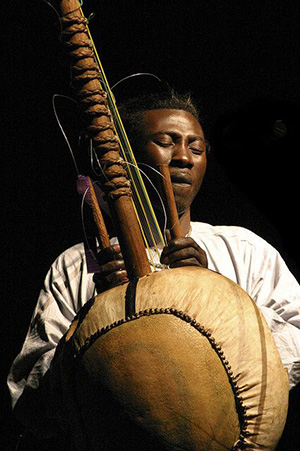
African Kora Player
The Kora, known in Europe as the West African Harp-Lute, is an instrument exclusive to the hereditary musical lineage of the five principal Griot families amongst the Manding people of West Africa. Although the instrument originates in Guinea, the music is deeply rooted in the history of ancient Mali and much of the repertoire dates back to the establishment of the thirteenth century Malian Empire by Sundiata Keita.
The Kora evolved out of its predecessor, the Konting or Ngoni, a 5-stringed Lute which dates back to ancient Egyptian times. A particular feature unique to this instrument is the division of the 21 strings into two parallel planes on either side of a raised notched bridge, with eleven strings on the left and ten on the right. A scale, or mode, is obtained by plucking the strings alternately with right and left hands, using only thumb and index finger. The nylon strings, formerly of gut, are attached to the wooden neck by adjustable leather tuning rings.
Konting or Ngoni (West African Lute)
The Konting or Ngoni is a 5-stringed Lute which dates back to ancient Egyptian times and is also known to the Wollof people in Senegal as the Halam. The variances in names relates to the variety of languages and peoples amongst whom the instrument is found. This instrument is the predecessor to the later European Lute and Guitar and in West Africa many of the techniques and musical styles intrinsic to this instrument have been subsequently transferred and incorporated into the Contemporary Guitar musical styles that are unique to West Africa.
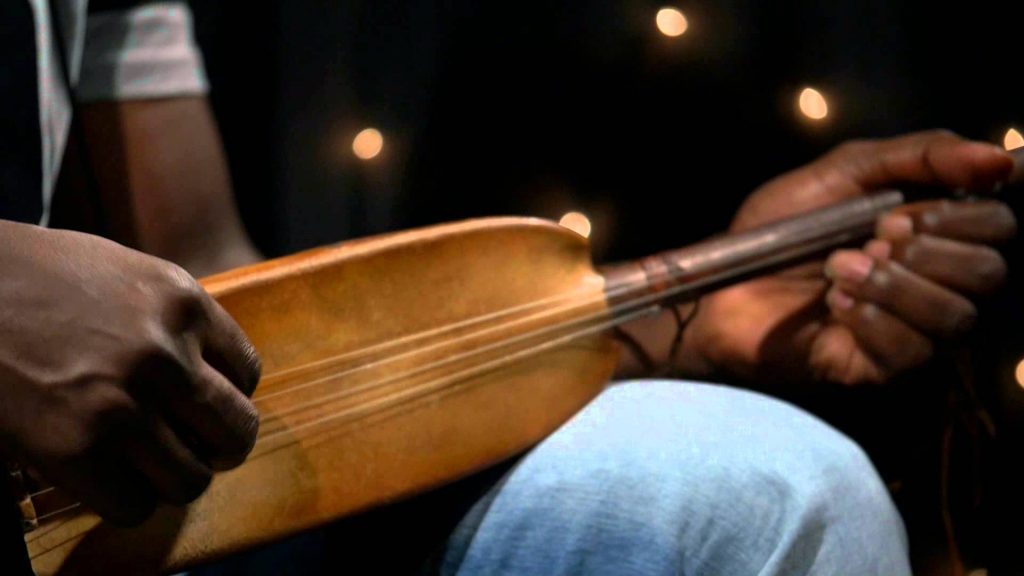
Ngoni musical
The body of the instrument is made from wood and covered over by cowskin and the strings are made from nylon, but like the Kora were formerly of gut. Also like the Kora, the Konting or Ngoni was exclusive to the guild of hereditary musicians know as Griots amongst the Manding people of West Africa. Most of the earliest pieces from the Classical Manding repertoire were originally composed on the Konting/Ngoni or Balafon (West African Marimba).
Guitar (Malian School of Guitar Playing)
Although the guitar we find in West Africa today originated in the medditereanean, evolving directly out of the principles of the European Lute and Arabian Oud, the Malian School of Guitar playing is drawn directly from the musical techniques of playing the Konting or Ngoni. The recurring open strings in the guitar lines still found within much of Malian music is reminiscent of this feature, which is so inherent in the music of the Konting/Ngoni.
This style of Guitar playing has also been more recently translated onto the Electric Guitar and draws much of its influence from Kora and Balafon techniques. This can be seen primarily in the ornamented descending runs that the Guitarists sometimes play, particularly in an Ensemble context. It is this that makes the Malian School of Guitar playing so distinctly different from any other.
Balafon (West African Marimba)
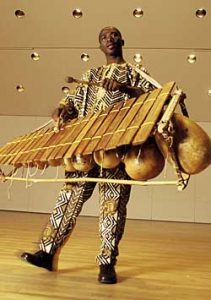
Balafon
The Balafon (West African Marimba) dates back to at least the 13th century to around the time of the celebrated Malian Emperor, Sundiata Keita, whose exploits the Griots continue to sing about to this day. Sundiata’s adversary, Samourou Kante was said to possess a huge Balafon in his Royal secret chamber and Sundiata’s own griot, Balla Fasseke Kouyate, was the first to play it other than Samourou Kante himself, and he is said to be the antecedent of the entire Griot hereditary caste to this day.
The Balafon, like the Marimba, consists of wooden panels for each note and is held within a wooden frame with a gourd under each one different in size relative to the pitch. The pitch range goes from left to right, bass to treble accordingly and is played with two treated beaters.
Malian Griot Vocal Tradition
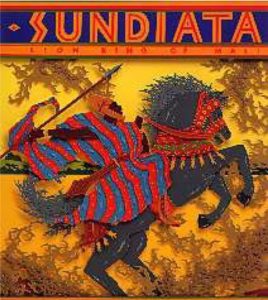
Sundiata an African Epic
The Malian Griot Vocal Tradition dates back to at least the 13th century to the time of the founding of the Malian Empire under the dominion of the Emperor Sundiata Keita. The present incarnation of the Griot Tradition of Mali traces its legacy to this period, which was a golden age for the guild of hereditary musicians known as Griots. Sundiata knew how to utilise the skills of the griot, particularly their command of oratory, to harness his own power.
The vocal within the Griot Tradition is therefore regarded as the first and foremost element of the music. It defines the message, conveys the meaning and is the first point of reference regarding the expression of the music. Whenever the vocal element is present in the music it becomes the pivot point for all the other instruments around it.
The vocal style on most of the repertoire can essentially be divided into two main areas,
1) the recitative element and 2) the musical refrain.
The recitative aspect in Malian Classical Music, as in Western Classical Music, is a sung/semi-spoken element which centres primarily around the words that are being put across. In this aspect the vocal melody takes a secondary role in importance to the delivery of the words.
The musical refrain is the melodic heart of the given song and is primarily lead by beauty of the melody even though the words are still of importance. This could be seen as similar to the chorus element in a Western Song although in the Malian tradition the musical refrain is not always the chorus.
Some of the most striking musical elements upon first listening to the Malian Vocal style is the use of ornamentation and the use of descending patterned passages to heighten the emotional expression of the music. Although there is a complex musical vocabulary that all the Griot vocalists must learn and be well versed in, the way that each vocalist uses these phrasings and vocabulary are particular and unique to the performer themselves.
Conclusion
As mentioned above this is a very basic introduction to this rich musical legacy which comes from just one of the seven hundred distinct peoples from within the continent of Africa. If you were completely unaware of this tradition before then it is an illustration of how much we need to learn, or re-learn about ourselves. Even in the continent itself there is a complete lack of awareness of the richness of our cultural inheritance in all its plurality, and it is this very ignorance of our own culture that has and do
es allow others to take charge of such legacies.
Europeans have been doing so much research and study of our culture and traditions it is almost safe to say they know more about them than ourselves whether it is from Ancient Egypt to Medieval African Kingdoms right through to the history of the formation of the African Diaspora. There are no more excuses to be had for not taking charge of one’s own inheritance and leaving our future generations in a pit of ignorance of themselves. We are all individually responsible not to allow that to happen and become the next chapter of our fate and destiny. A knowledge of history is the key to re-asserting a new definition or re-definition of oneself with confidence for the weight of truth and wisdom are already on our side.
Specially written as a contribution to the 500 Years Later project
References
| ↑1 | Intro by ‘Alik Shahadah |
|---|

